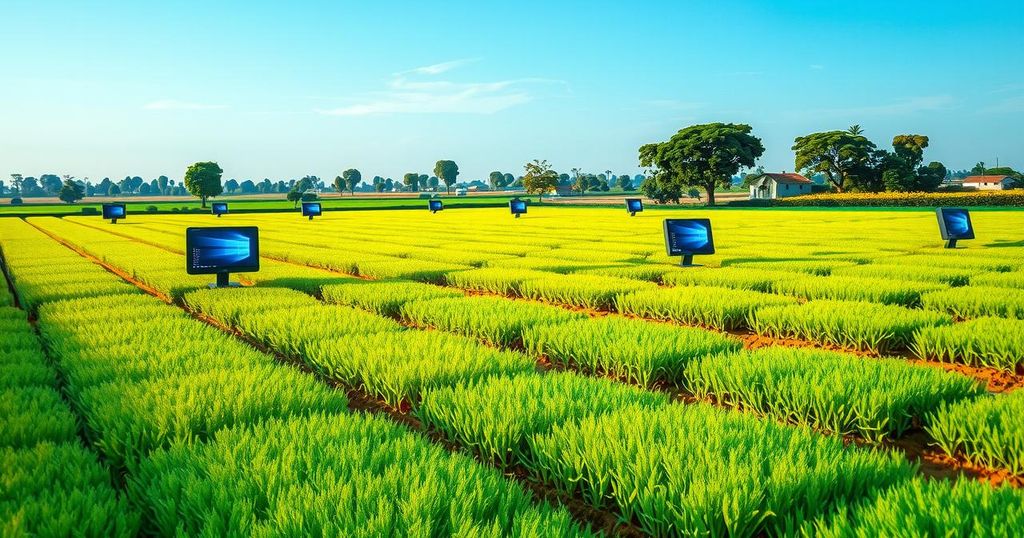AI Technology as a Lifeline for Nigerian Farmers Facing Climate Challenges

Farmers in Nigeria are leveraging artificial intelligence to improve crop production and manage agricultural challenges, such as climate change. Dandam Nangor’s successful greenhouse operation exemplifies how technology can enhance harvest efficiency. Innovations from companies like Green Eden and Anatsor are bridging the gap between technology and rural farming, yet challenges regarding environmental impacts and access to digital resources persist.
Farms in Nigeria are receiving a crucial boost through the use of artificial intelligence, as demonstrated by Dandam Nangor, a 34-year-old farmer who monitors his greenhouse conditions via his smartphone. The technology helps him manage temperature, irrigation, and soil acidity, leading to a significant increase in his pepper production by 20%. As agri-tech firm Green Eden processes data collected from the soil, it aims to revitalize agriculture in a country where the sector plays a vital role in the economy, contributing approximately 20% of Nigeria’s GDP.
Amidst the challenges posed by climate change, with erratic rainfall affecting smallholder farmers, solutions are being sought to enhance agricultural sustainability. Green Eden’s founder, Stephanie Meltus, acknowledges the impact of climate variability on farming and underscores the importance of technological intervention. The collaboration between Nigeria’s booming tech industry and rural agriculture is seen as a means of addressing systemic challenges and fostering growth in the sector.
In a similar vein, Mercy Atsuku, a poultry farmer, has benefited from advanced monitoring technologies introduced by the local start-up Anatsor. This system provides real-time data on environmental conditions, resulting in improved management practices with reduced mortality rates among her chickens. Despite the initial costs, many farmers find that technology alleviates stress and improves their ability to respond to adverse conditions.
Agronomy professor Nuhu Adamu Gworgwor highlights the urgency of adopting such innovations as urbanization and climate impacts push more individuals away from traditional farming. However, concerns linger regarding the agri-tech sector’s focus on productivity at the expense of environmental sustainability. Critics point out that only 40% of Nigerians have Internet access, a statistic which declines significantly in rural areas, potentially limiting the reach and effectiveness of these technological advancements.
The integration of artificial intelligence in Nigerian agriculture presents a promising opportunity for enhancing crop production and supporting farmers in adapting to climate change. However, amidst the innovation, challenges regarding environmental sustainability and digital access remain. As the agri-tech sector develops, addressing these concerns will be crucial for fostering a resilient agricultural landscape in Nigeria.
Original Source: www.thehindu.com






